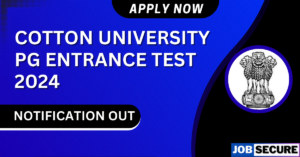Read The Given Passage Carefully And Answer The Questions Given Below
These days, democracies are constantly on edge, caught between the power of the government and the freedoms of its people. That’s why it’s important, even crucial, that the Supreme Court of India just came out strong in favour of dissent being a key part of a healthy democracy. The Court basically said, “criticizing the government isn’t always a crime!” This is a big deal, especially now when people get accused of treason and threats to national security just for disagreeing. It’s like they’re trying to shut everyone up! The Supreme Court basically told the police to get a better handle on what free speech really means (it’s right there in Article 19(1)(a) of the Constitution, by the way). They need to learn the difference between someone just voicing their opinion and someone trying to stir up trouble. This isn’t just about paperwork, it’s about getting back to the
basics of democracy at a time when it’s hard to tell the difference between saying what you think and being a criminal. This whole thing started because a professor in Kolhapur got in trouble with the law for speaking his mind about some hot-button political issues. The Supreme Court stepped in and threw the charges out, showing they’re serious about protecting free speech. This isn’t the first time they’ve done this, either. They’ve been setting the boundaries for what you can and can’t say under the Constitution for a while now. One of the Supreme Court justices, Justice BV Nagarathna, even said that dissent is super important for making our government better. It helps us come up with new ideas and improve the way things are run. This fancy legal talk just means that different viewpoints are good for everyone, they help us have better discussions and make
better policies. But this isn’t just about the police. There’s a bigger problem in society where people try to shut down anyone who disagrees with them, all in the name of keeping everyone happy or protecting the country’s feelings. Silencing dissent doesn’t just make for boring conversations,
it turns democracy into a one-sided echo chamber where nobody questions anything. That’s bad news.The Supreme Court is basically saying, “Let’s all be smarter about this dissent thing, and follow the Constitution!” We need a complete overhaul, from the judges all the way down to the people on the street. We need to create a space where everyone feels comfortable having a reasonable debate and sharing their thoughts, no matter how different they are. This isn’t just about the law, it’s about bringing back the spirit of the “argumentative Indian” – someone who loves a good discussion and wants to make sure everyone gets a say in our democracy.
- What did the Supreme Court of India recently emphasize regarding dissent?
a) It should be prohibited at all times
b) It is always considered a crime
c) It is an essential component of a healthy democracy
d) It leads to instability in the government - What did the Court suggest law enforcement agencies need to better understand?
a) Free speech laws in other countries
b) The importance of censorship
c) The difference between legitimate expression of opinion and attempts to incite trouble
d) The role of social media in dissent - What was the origin of the recent case discussed in the passage?
a) A politician in Delhi
b) A professor in Kolhapur
c) A journalist in Mumbai
d) A student in Chennai - According to the passage, what does dissent help in improving?
a) Government efficiency
b) Social media engagement
c) Economic policies
d) Weather forecasting - Who emphasized the role of dissent in enhancing government effectiveness?
a) The Prime Minister of India
b) A Supreme Court Justice
c) A Member of Parliament
d) A university professor - What is the danger highlighted in the passage if dissent is silenced?
a) Increased government efficiency
b) Monotonous discussions
c) Improved democracy
d) Stronger national security - What does the passage advocate for regarding dissent?
a) Complete silence
b) Robust debates and inclusive participation
c) Strict censorship
d) Suppression of different viewpoints - According to the passage, what is essential for the vitality of democratic processes?
a) Monotonous discussions
b) Inclusive participation and open dialogue
c) Silence and obedience
d) Strict adherence to government policies - What did Justice BV Nagarathna highlight regarding dissent?
a) Its harmful effects on democracy
b) Its role in creating a one-sided echo chamber
c) Its importance in improving governance
d) Its irrelevance in modern society - What term is used to describe someone who loves a good discussion and wants to ensure everyone gets a say in democracy?
a) A silent observer
b) An argumentative Indian
c) A passive participant
d) A conformist voter
Answers:
- c) It is an essential component of a healthy democracy
- c) The difference between legitimate expression of opinion and attempts to incite trouble
- b) A professor in Kolhapur
- a) Government efficiency
- b) A Supreme Court Justice
- b) Monotonous discussions
- b) Robust debates and inclusive participation
- b) Inclusive participation and open dialogue
- c) Its importance in improving governance
- b) An argumentative Indian





